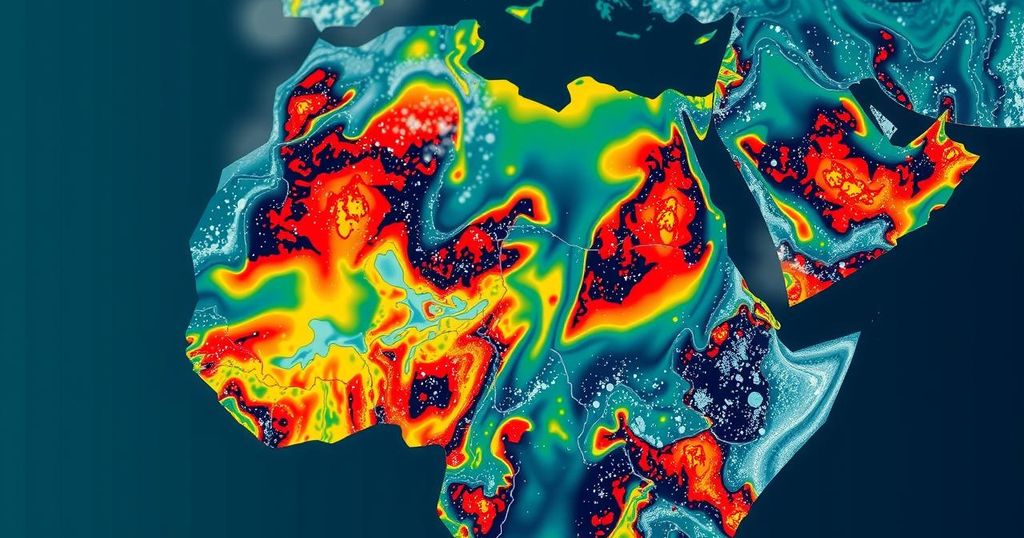Climate Change Intensifies Floods in Africa, Say Scientists

Recent floods in Cameroon, Chad, Niger, Nigeria, and Sudan were worsened by climate change, with rainfall intensity increased by 5-20%. Approximately 1,500 fatalities and over 1 million displacements were reported due to these floods. If global warming continues, such extreme events could become a yearly occurrence, necessitating better preparedness and financial support from wealthy nations.
A team of international scientists has asserted that recent catastrophic rainfall which led to severe floods in countries such as Cameroon, Chad, Niger, Nigeria, and Sudan was exacerbated by anthropogenic climate change. According to World Weather Attribution (WWA), the seasonal rains experienced in 2023 were intensified by 5-20% as a direct result of global warming across the Niger and Lake Chad basins. This trend indicates that such extreme rainfall events may become annual occurrences if current warming patterns persist. Izidine Pinto, a researcher at the Royal Netherlands Meteorological Institute, commented, “Spells of heavy summer rainfall have become the new normal in Sudan, Nigeria, Niger, Cameroon and Chad.” The United Nations Office for the Coordination of Humanitarian Affairs (OCHA) reported that this year’s flooding resulted in approximately 1,500 fatalities and displaced over 1 million individuals across West and Central Africa, in addition to overwhelming dams in Nigeria and Sudan. The WWA further warned that should global temperatures increase by 2 degrees Celsius (3.6 degrees Fahrenheit) by the 2050s, such severe downpours could transpire almost annually in the affected regions. The scientists are advocating for enhanced investment in early warning systems and the modernization of dam infrastructures to better manage the risks associated with such extreme weather events. Joyce Kimutai, a researcher at the Centre for Environmental Policy at Imperial College, noted that despite Africa’s minimal contribution to global carbon emissions, it suffers disproportionately from extreme climatic impacts. She emphasized the importance of the forthcoming COP29 climate discussions in November, urging wealthier nations to provide substantial financial support to alleviate climate-related challenges in Africa.
Recent climatic events in Africa have highlighted the profound impact of climate change on weather patterns, particularly in relation to rainfall and flooding. The continent, while contributing minimally to global greenhouse gas emissions, is experiencing some of the most severe consequences of climate change. This report reflects a comprehensive analysis of these events by a collective of climate scientists, showcasing the urgent need for global action to address the inequities faced by vulnerable nations. The findings pertaining to rising rainfall intensity underscore the necessity for proactive measures to safeguard communities against the increasingly likely natural disasters related to climate change.
In summary, the exacerbation of heavy rainfall due to climate change has dramatically impacted several African countries, leading to significant loss of life and displacement. The evidence of intensified rainfall trends prompts a call for enhanced international cooperation and investment aimed at improving resilience in these regions. As African nations brace for the potential for more frequent extreme weather, the need for financial and technical support from developed countries becomes increasingly critical.
Original Source: www.usnews.com






